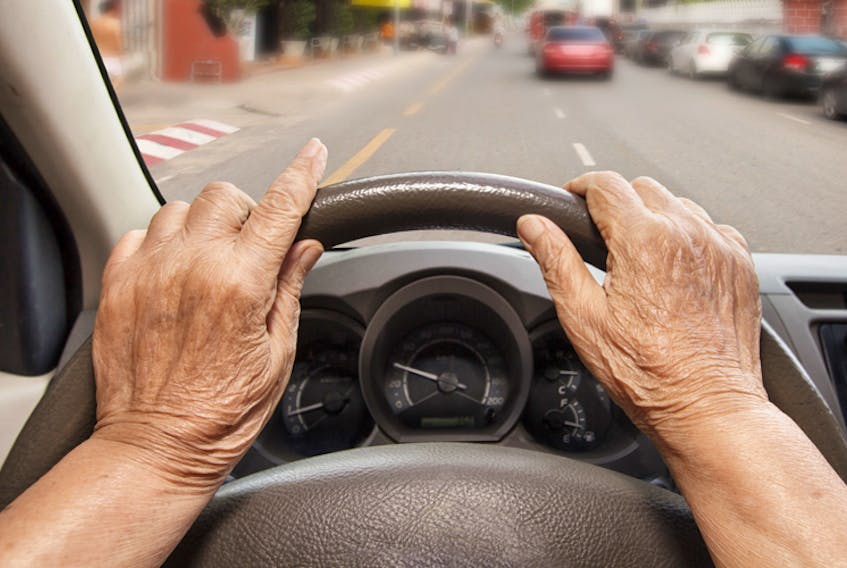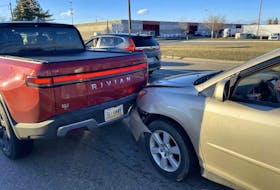Dementia is the loss of cognitive function due to changes in the brain caused by disease or trauma.
Cognitive functions include thinking, spatial orientation, decision-making and judgment — all pretty significant when it comes to driving.
Medical experts tell us dementia can also result in behavioural and personality changes, depending on the portion of the brain affected.
These changes can come gradually or quickly and how they occur may determine whether the dementia can be treated or is irreversible.
Millions of people suffer from severe dementia and millions of others have mild to moderate cases.
It is estimated that five to eight per cent of people over the age of 65 have some form of the illness and that number doubles every five years from that age.
As is the case with many health issues, the knowledge and incidence of dementia have both increased in recent years.
There is some debate about whether that is the result of improved diagnostics, greater awareness or because increased longevity is creating a larger pool of elderly folks where the disease is common. The greatest risk factor for dementia is advanced age.
That leads to the whole issue of elderly drivers and the requirement for a standardized method of testing or screening to detect dementia and other diseases. It is not as simple as a road test.
The medical community says in-vehicle tests may not detect health-related problems because the early warning signs are often very subtle.
The issue is that of distinguishing between drivers who are elderly and elderly drivers with a medical problem that affects their ability to drive. It has become easy fodder to pick on elderly drivers because of a few newsworthy events created by them. But at the other end of the scale we also have new young drivers causing spectacular incidents.
Young driver incidents are most often related to excessive speed for conditions and inexperience. With the elderly, the problem is loss of attention and even loss of mobility or consciousness.
In the early stages of dementia, drivers may retain the skills necessary for the safe operation of a motor vehicle. But, in most cases, dementia is progressive and driving skills can deteriorate significantly in a short period of time.
The Alzheimer Society of Canada says some individuals may be capable of driving safely for some time after a diagnosis “depending on when in the disease progression the person has been diagnosed and the rate the disease progresses.” Eventually, it says, people with Alzheimer's disease must stop driving, as it will no longer be safe.
Alzheimer’s disease is the most common cause of dementia. The symptoms of dementia include memory loss, visual-spatial disorientation, and decreased cognitive function. Visual-spatial disorientation as it relates to driving can be described as the inability to properly co-ordinate where you are with the motion of traffic around you.
Cognitive function is the mental processes that allow us to carry out a task. These include receiving, remembering and processing information.
The progression of dementia varies from one individual to another making it difficult to know when or how to limit or stop driving.
Things to look for outside vehicle
- The individual becomes disorientated or lost in familiar surroundings
- Needs reminding about personal care
- Decreased co-ordination
- Mood swings, irritability
- Difficulty in multi-tasking
- Difficulty judging space and/or distance
- Difficulty with decision-making
Things to look for inside vehicle while driving
- Driving too slowly
- Lack of distance judgment
- Stops for no reason
- Lost on a familiar route
- Drifts into wrong or different lane
- Poor parking
- Fails to signal, or does so incorrectly
- Forgets rules of the road
If you become aware of these issues discuss them with the driver, family members and family doctor. You might also consider asking the individual to go for a drive with as a co-pilot, on a route that should be familiar to them.
Ask them to tell you when to change lanes, when to signal and discuss the general rules of the road.
If they become frustrated or have difficulty, it may be time to consider the next step.
With few exceptions, we will all have to face the fact that at some point, our driving may be dangerous not only for ourselves, but for other road users.









